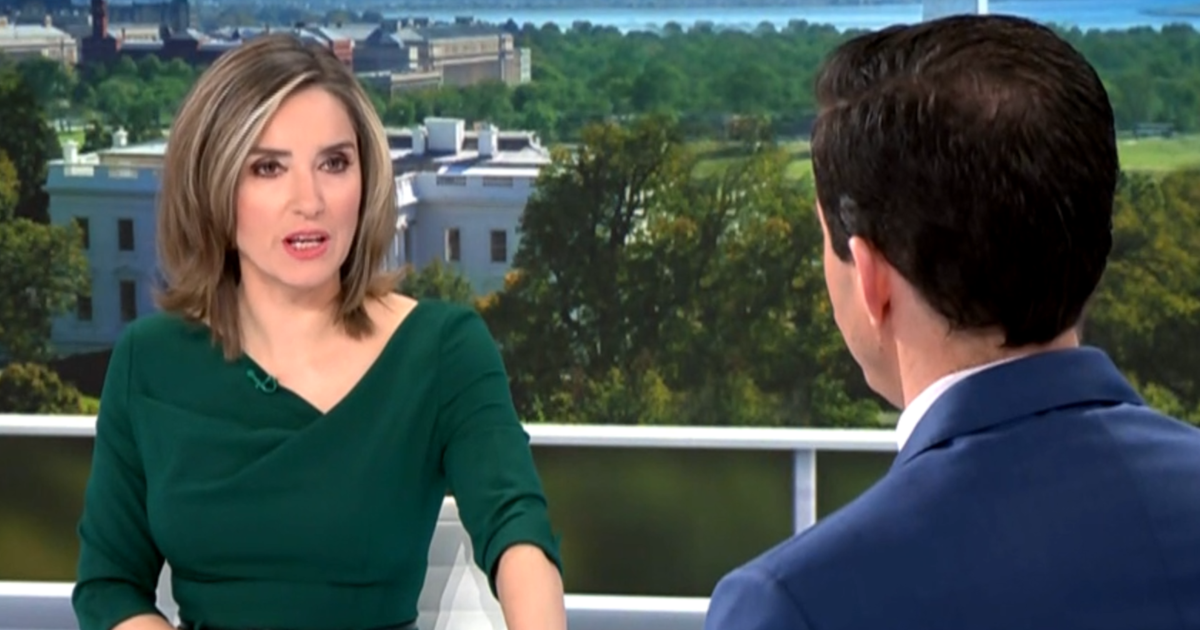McConnell: Senate won't be "intimidated" by "mob-like tactics" of anti-Kavanaugh protesters
Fresh off the successful confirmation of Brett Kavanaugh to the Supreme Court, Senate Majority Leader Mitch McConnell says the vote showed the Senate "will not be intimidated" by what he called the "mob-like tactics" of protesters on Capitol Hill opposed to Kavanaugh.
McConnell told CBS' "Face the Nation" Sunday that senators required extra security over the past several weeks, claiming demonstrators were "attacking" members at their homes.
In emotionally charged scenes this past week, groups of anti-Kavanaugh protesters confronted members of Congress directly, with many demonstrators sharing their own stories of sexual assault. Hundreds were detained or arrested in various demonstrations leading up to Saturday's final vote on Kavanaugh's confirmation.
"It was really quite a display of aggressiveness far beyond what I'd consider peaceful protesting. They were trying to intimidate members of the Senate not only in our home states but in the Capitol and in our homes here in Washington," McConnell said. "I'm really proud of my members for not knuckling under to those kind of mob-like tactics."
He added, "We were able to establish that the presumption of innocence is still important in this country and that the senate is not going to be intimated by these kind of tactics.
McConnell reiterated his view that the fight over Kavanaugh's confirmation has re-energized the Republican base ahead of next month's midterm elections, thanking Democrats for the newfound enthusiasm.
"Ironically the behavior of Democrats on Senate Judiciary Committee and then the overreach of the protests at the Capitol have actually energized the Republican base, particularly in the red states where we're trying to pick up seats across America," McConnell said. "So I want to thank the other side for the tactics that have allowed us to kind of energize and get involved our own voters."
He added, "Everyone knows how energized the Democrats are, for a whole variety of different reasons, and so our energy and enthusiasm was lagging behind theirs until this. And I think this gave us the motivation and the opportunity to have the kind of turnout in this off-year election that will help us hold the Senate."
When pressed on his decision to block Judge Merrick Garland's 2016 Supreme Court nomination by then-President Barack Obama, McConnell was adamant that the move was "consistent" with historical Senate precedent.
"You have to go back to 1880 to find last time a Senate controlled by a different party from the president confirmed a Supreme Court justice to a vacancy created in the middle of a presidential election," McConnell said.
John Dickerson pointed out that President Dwight D. Eisenhower, a Republican, named William Brennan to the court in 1956 by recess appointment just before that year's presidential election. Brennan began serving immediately, and was formally nominated and confirmed the next year.
"I know the history of this, I've spent a lot of time on this throughout my career. What I did was entirely consistent with what the history of Senate has been in that situation going back to 1880," McConnell replied.
Dickerson added that recess appointments and confirmations in election years "undermine the idea it was Senate norm" or precedent that "justices couldn't be confirmed because voters had to have their say," which is the rationale that Republicans used to stop Garland from getting through the Supreme Court nomination process.



